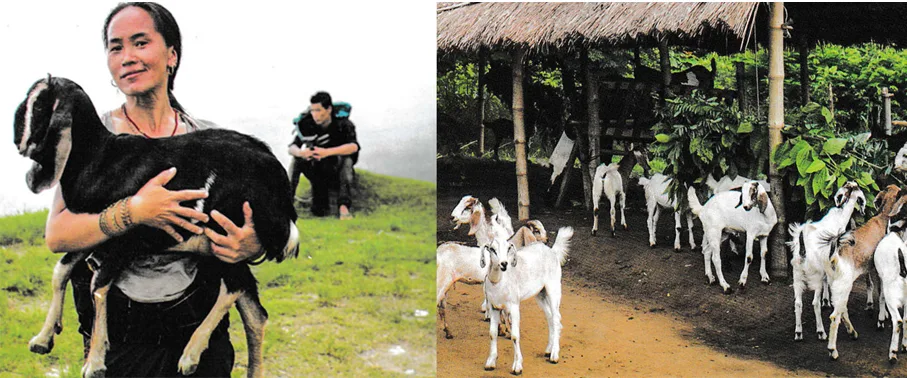KATHMANDU: The Nepal Livestock Sector Innovation Project (NLSIP), a World Bank-financed project under the Ministry of Agricultural and Livestock Development (MoALD) completed its six-year term.
More than 235,000 individual farmers, of which 42 percent are female, and about 1,400 producer organizations directly benefitted from the project.
The project increased productivity, enhanced value addition, and improved climate resilience of smallholder farms and agro-enterprises in dairy, goat meat, and Chyangra fiber value chains in 289 municipalities across five provinces (Koshi, Madhes, Bagmati, Gandaki, and Lumbini).
In addition, it enhanced regulatory and institutional capacity in the sector, modernized service delivery, and promoted genetic improvement of livestock.
The project played a crucial role in the formulation of the National Animal Health Policy and National Livestock Breeding Policy, both of which were approved by the Cabinet in 2022.
Additionally, the Infectious Animal Disease Control Act and Animal Welfare Act have been drafted.
The project supported the national vaccination program which helped to significantly reduce the number of animal deaths due to Foot and Mouth Disease (FMD) and Peste des Petits Ruminants (PPR) by 63 percent and 88 percent respectively since 2018.
This helped protect farmers from incurring huge financial losses due to animal deaths.
The project also developed seven cold rooms located at different strategic locations of the seven provinces with a combined capacity to store 5 million doses of vaccine.
“These cold rooms are serving as provincial vaccine banks. Although they were developed for livestock and poultry vaccines, they are also of public health importance, as rabies vaccines and other vaccines needed during emergencies like COVID-19 can be stored,” said Baikuntha Adhikari, Project Director of NLSIP. “These facilities will be a valuable asset in future.”
For genetic improvement, the project strengthened the capacities of the National Livestock Breeding Office.
Six bulls were imported from the United States to improve livestock breeds as well as milk production and productivity, and a Pedigree Performance Recording System (PPRS) was supported to strengthen the national breed improvement program.
Similarly, to promote inclusive value chains for selected livestock commodities, the project provided matching grant support to 446 sub-projects against a mandatory investment of 20% equity and 30% third-party financial institutional loan.
With support from the project, the Pashmina Processing Facility has come into operation for the first time in the country.
Additionally, the project strengthened market linkages by establishing and operating 54 infrastructures such as livestock markets, Livestock Service Centers, and seed processing facilities.
Speaking at the closing ceremony of the project on Friday, Minister for Agriculture and Livestock Development Jwala Kumari Sah said that since the government of Nepal has already announced the ‘decade of agriculture’ starting this year, the achievements and results in agriculture and livestock development by this project need to be institutionalized by all tiers of the government
She stressed the need to develop skilled human resources in the agriculture sector.
“Today’s biggest challenge is to develop and mobilize skilled human resources to mitigate the impacts caused by climate change, mechanization, and intensive agricultural systems.
The excessive use of machinery tools and the commercialization of agriculture demands qualified and skilled human resources in the agriculture sector, and it should be a priority for all three tiers of the government,” said Minister Sah.
Minister Sah said that agro-businesses are generally affected by market fluctuations, so to sustain them, the government should draft policies to protect and promote farmers and agro-businesses.
“We congratulate the government for the successful implementation of the project and the medium- and long-term vision towards a resilient animal health and agri-food sector,” said Lada Strelkova, World Bank Operations Manager for Maldives, Nepal, and Sri Lanka. “We hope that with these foundational works, the government will internalize the achievements and implement them at both the central and local levels, leading to long-term outcomes for the benefit of the people of Nepal.”
RSS









Comment